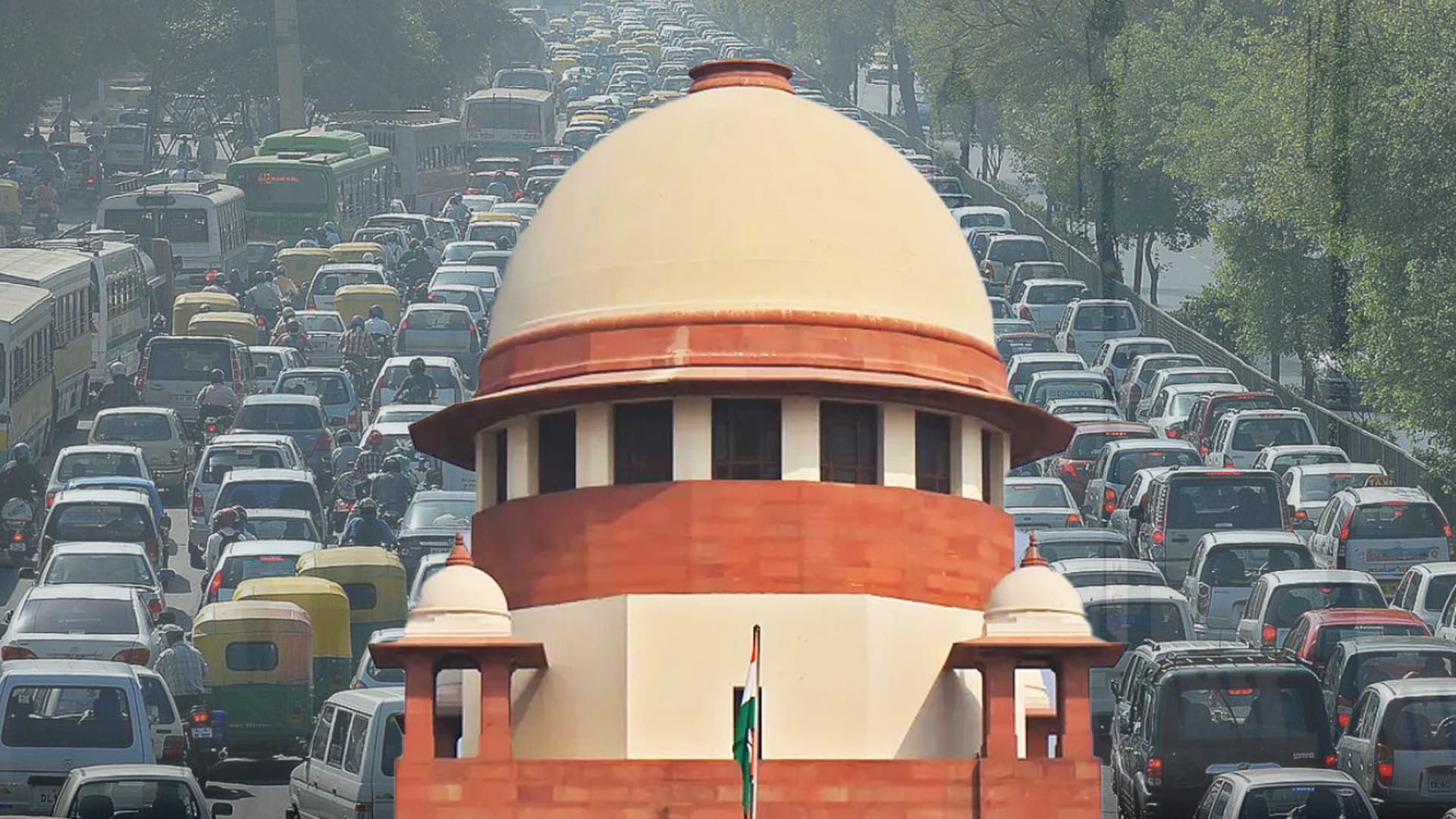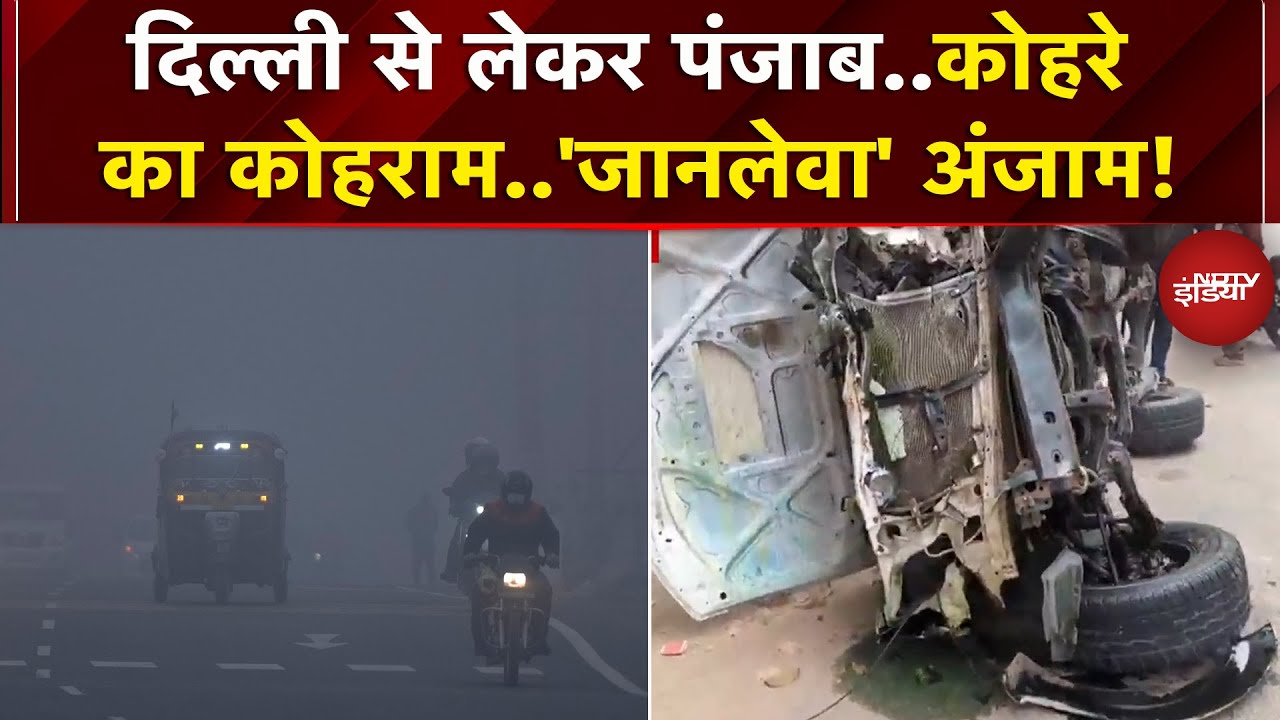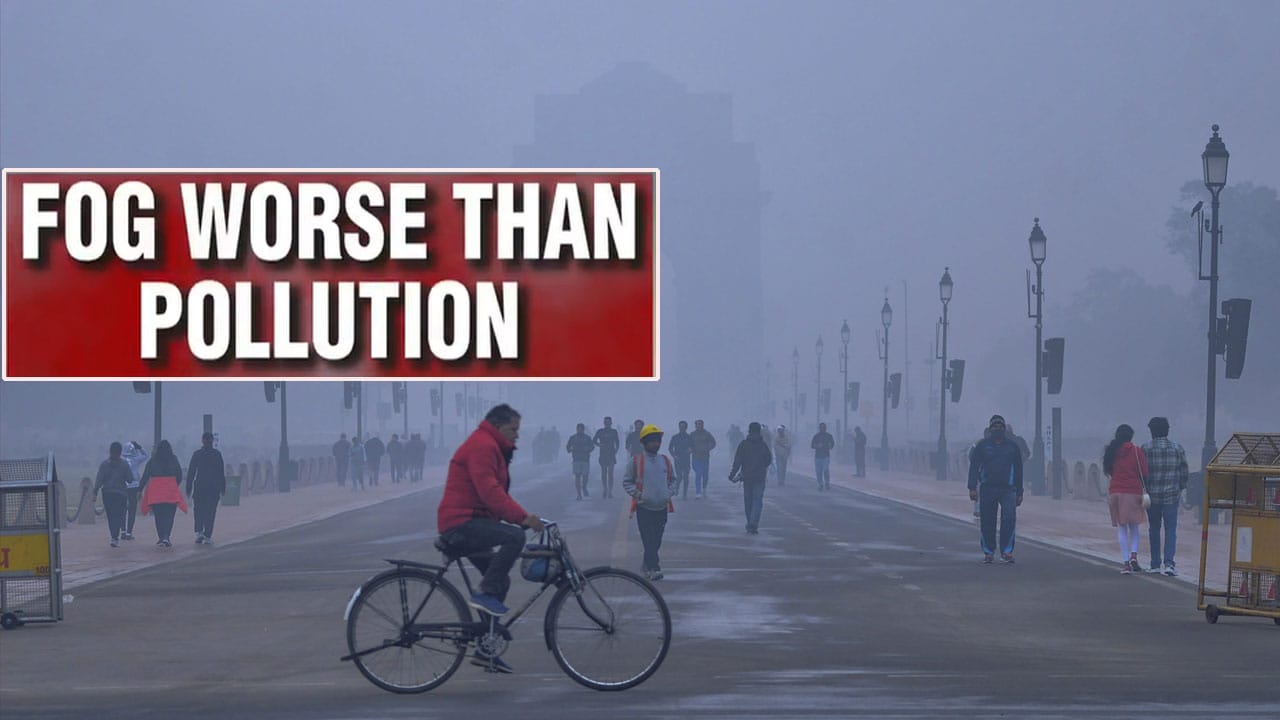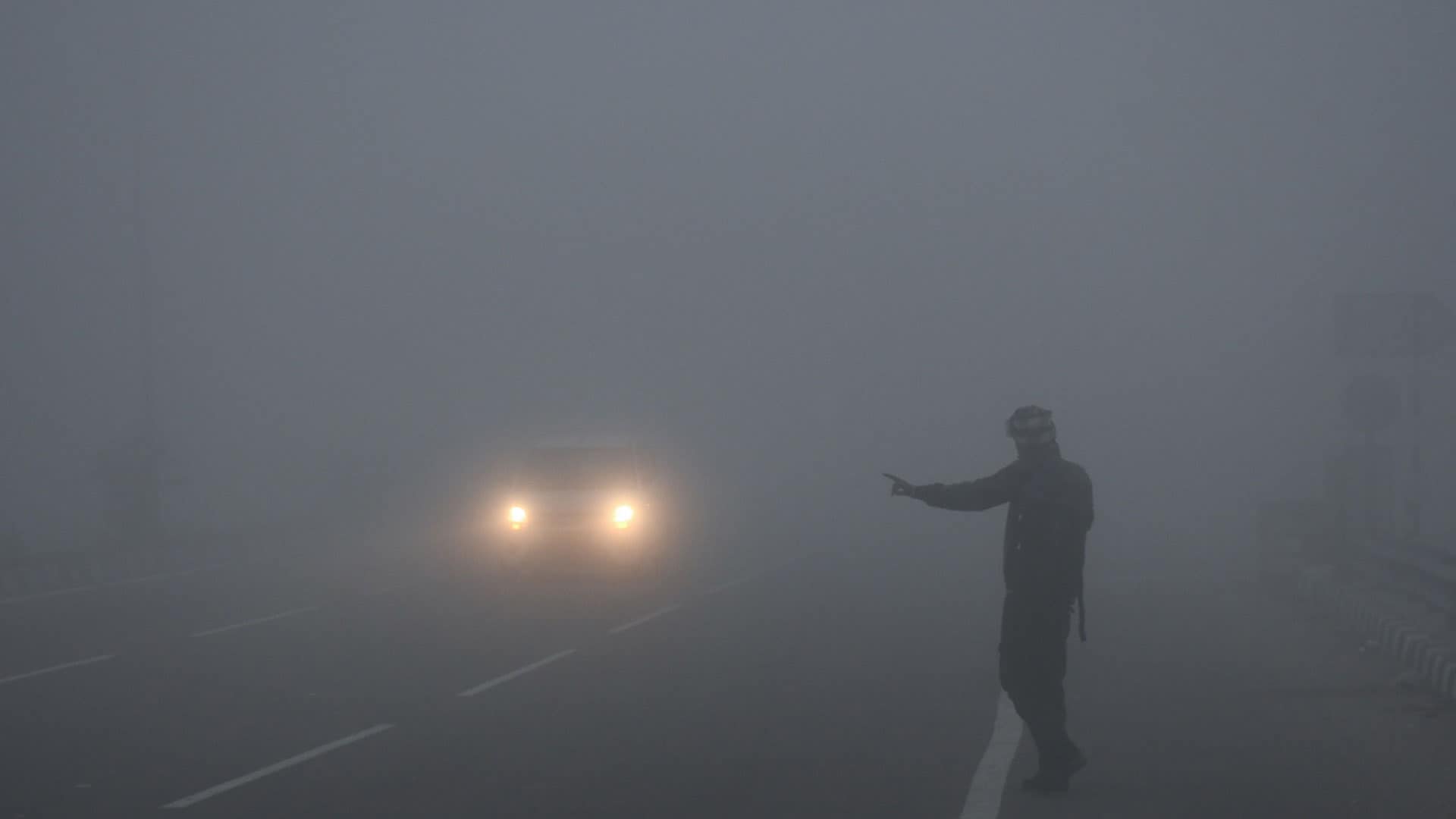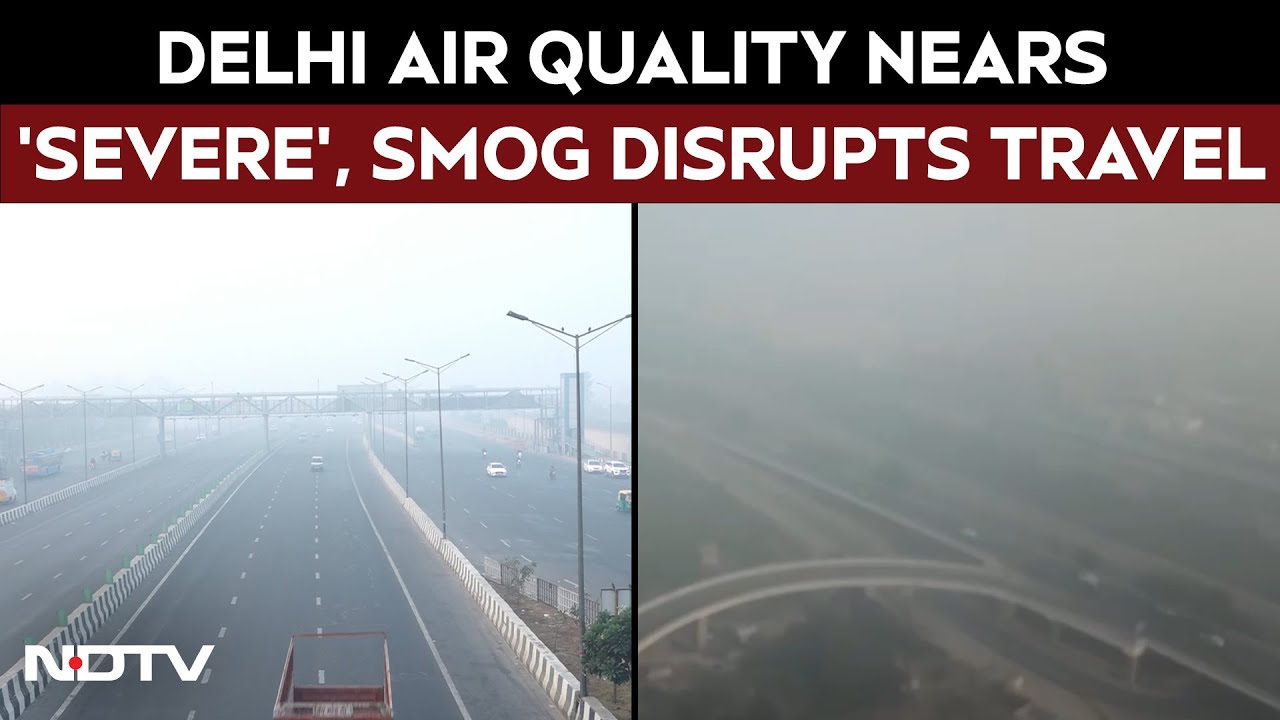- Home/
- The Women Going From Farm To Farm To Help Stop Stubble Burning
The Women Going From Farm To Farm To Help Stop Stubble Burning

Sanju is on a mission. For weeks, she has travelled from village to village, urging farmers to stop burning stubble from harvested rice crops near New Delhi.
As winds slow during the winter months, a poisonous haze collects over northern India. During the worst stretches, the region's air pollution can reach multiple times the global safety threshold. Stubble burning is one of the leading causes of the smog.
Sanju, 24, who goes by one name, is among several hundred gig workers in Haryana -- all of them women -- trying to reverse that trend. She encourages farmers to spray a white substance on their fields to decompose crop residue, rather than set it ablaze. Her work forms part of one of the most ambitious attempts to eliminate stubble burning in India.
"It's a win-win situation for farmers," said Dhruv Sawhney, the chief operating officer of nurture.farm, a digital platform promoting sustainable agriculture that is overseeing the project. In addition to hiring on-the-ground messengers like Sanju, his group provided the decomposer for free to 25,000 farmers this year.
Mr Sawhney said the new organic spray, which was developed by the state-run Indian Agricultural Research Institute, has helped prevent farmers from burning over 385,000 acres of rice paddies. The low-cost bio-enzyme, called Pusa decomposer, breaks down straw and turns it into fertiliser.
Over the next three years, nurture.farm plans to expand its coverage area to 57 lakh acres at an annual cost of Rs 600 crores. Even if the company starts charging for the powder, many farmers say they would continue using it, in part because they end up saving on fertiliser costs. India, which the world's biggest grower of cotton and second-largest producer of rice, wheat and sugar, is being squeezed by a global shortage of fertilisers.
"I don't mind spending a nominal amount on this but it should be reasonable otherwise I will again resort to my earlier practice of burning the crop," said Anil Kalyan, 58, who used the decomposer on 40 acres of his farm. This year marked the first time in four decades he has not burned the stubble.
The bio-enzyme breaks down crop residue in about three weeks on average and increases organic carbon in the soil. On some farms, crops disintegrated even faster, within about a week, an encouraging sign as more farmers use the decomposer, Mr Sawhney said.
Farmers are often blamed for northern India's terrible air quality. Every winter, smoke from stubble burning mixes with construction dust and industrial emissions to produce a toxic cocktail that blots out the sun, grounds flights and overwhelms hospitals. The haze lingers in the region's trough-like topography for weeks.
But political will to find a solution has dragged, largely because farmers lacked a cost-effective alternative. Technologies like the Happy Seeder, a machine that sows seeds while simultaneously removing straw and depositing it over the fields as mulch, are too cumbersome and expensive. There are also plants that use the straw to make ethanol, but there's not enough capacity currently.
So far, farmers say, the decomposer is a promising breakthrough.
Satinder Sharma, 62, who harvests wheat in Haryana, expects his yield to improve by 10% this year. He spends less now on fertilisers such as urea and diammonium phosphate, a boost to his earnings. A bonus, he said, is doing his part to ensure clean air for the next generation.
The decomposer will "save the soil and plants next to the fields and the produce will be better for health," he said. "It was a curse of nature to burn the crops and we were contributing to that."
also read
Latest Stories
- Edited by Astitva Raj | Monday January 12, 2026
In the video, Evans, known as "Aussie Bhai" on Instagram, was seen removing the filter from his air purifier.
- Press Trust of India | Friday January 09, 2026 , New Delhi
The PM2.5 assessment for 2025 ranks Byrnihat (Assam), Delhi, and Ghaziabad (Uttar Pradesh) as India's top three most polluted cities with annual concentrations of 100 g/m, 96 g/m, and 93 g/m, respectively.
- Written by Shreya Goswami | Wednesday January 07, 2026
A study by Jawaharlal Nehru University finds that Delhi's polluted winter air carries high levels of antibiotic-resistant bacteria or superbugs far above safe limits, posing public health risks, especially for vulnerable groups and those with chronic
- Reported by Nupur Dogra | Tuesday January 06, 2026 , New Delhi
The Commission for Air Quality Management or CAQM, was strongly reprimanded by the Supreme Court today, which said the pollution body was not taking the issues raised by the court seriously.
- Written by Shreya Goswami | Tuesday January 06, 2026
Bronchial asthma often worsens in winter due to cold air, pollution and infections.
................................ Advertisement ................................
Latest Videos
Opinion
Blog | Well Done, Delhi. You've Turned Lung Sacrifice Into A Badge Of HonourSaikat Kumar Bose
Monday November 10, 2025Till some years back, Delhiites would ask angry questions to those in power about the capitals annual tryst with toxic air. This has changed. Those in the driving seat dont see the need to answer now.
Opinion | Why Indians Have Just Given Up On Air Pollution CrisisTanushree Ganguly
Friday December 20, 2024While some may argue that people in Delhi are now more aware of air pollution than they were a decade back, my rebuttal would be that awareness does not mean that people are concerned.
Opinion | You Must Outrage Over Filthy Air More Than Once A YearJyoti Pande Lavakare
Tuesday December 10, 2024Delhi welcomed us with monsoon rains and mangos. We were home. Fast forward a couple of years, in the winter of 2012, I found myself in denial about something other parents, mostly expats, were calling toxic air.
Opinion | Delhi's Air Pollution Situation Is Like A Bad MarriageNishtha Gautam
Friday November 22, 2024On a good day, such as today, the AQI reading in Delhi is 407. We are jubilant at the sickly sunshine trickling through the slightly dissipated smog. At least its not 1600.
दिवाली... पराली... सियासी जुगाली!Ashwini kumar
Monday November 18, 2024दिल्ली-एनसीआर में प्रदूषण का समाधान तो आज तक मिला नहीं. हर साल चिंतित होकर हम-आप सांसों की तकलीफ के साथ-साथ दिल और ब्लड प्रेशर के मरीज भी क्यों बनें?








